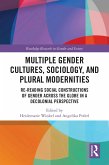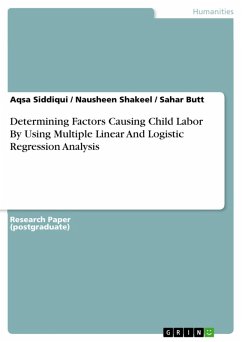Seminar paper from the year 2004 in the subject Sociology - Miscellaneous, grade: A (1,0), The New School (Historical Studíes), course: Sciciological Foundations II: Sociology and History, language: English, abstract: "1. Deliberative councils shall be widely established and all matters decided by public discussion. 2. All classes, high and low, shall unite in vigorously carrying out the administration of affairs of state. 4. Evil customs of the past shall be broken off and everything based upon the just laws of nature. 3. The common people, no less than the civil and military officials, shall each be allowed to puse his own calling so that there may be no discontent. 5. Knowledge shall be sought throughout the world so as to strengthen the foundations of imperial rule" 1. These progressive pledges constituted the programmatic Charter Oath, issued by the Meiji emperor in April18682 and marking the official beginning of the Meiji restoration. Only fifteen years after the arrival of Commodore Matthew C. Perry's "Black Ships" 3 and the forced opening to the world in 1853, Japan embarked on a rapid and successful modernizing process. By 1894, the Japanese modernization was already seen as a role model for other nations; the Chinese revolutionary Sun Yat-sen wrote in that year: "The first step in China's revolution was the Meiji Restoration; the Chinese revolution is the second step in the Meiji revolution" 4. Instead of suffering the "fate of semi-colonialism" 5, Japan was able to start an own diplomacy of imperialism6. [...] 1 Jansen, Marius B.: The Making of Modern Japan, Cambridge, Mass. & London 2000, p. 338. 2 Jansen, Japan, p. 337. 3 Jansen, Japan, p. 277. 4 Takeda, Kiyoko: The Unfinished Meiji Revolution in Intellectual History, in: Nagai, Michio & Urritia, Miguel (eds.): Meiji Ishin: Restoration and Revolution, Tokyo 1985, p. 159-172, here: p. 169. 5 Lü, Wan-he: Western Learning and the Meiji Ishin, in: Nagai, Michio & Urritia, Miguel (eds.): Meiji Ishin: Restoration and Revolution, Tokyo 1985, p. 153-158, here : p. 153. 6 Jansen, Japan, p. 436.
Dieser Download kann aus rechtlichen Gründen nur mit Rechnungsadresse in A, B, BG, CY, CZ, D, DK, EW, E, FIN, F, GR, HR, H, IRL, I, LT, L, LR, M, NL, PL, P, R, S, SLO, SK ausgeliefert werden.









